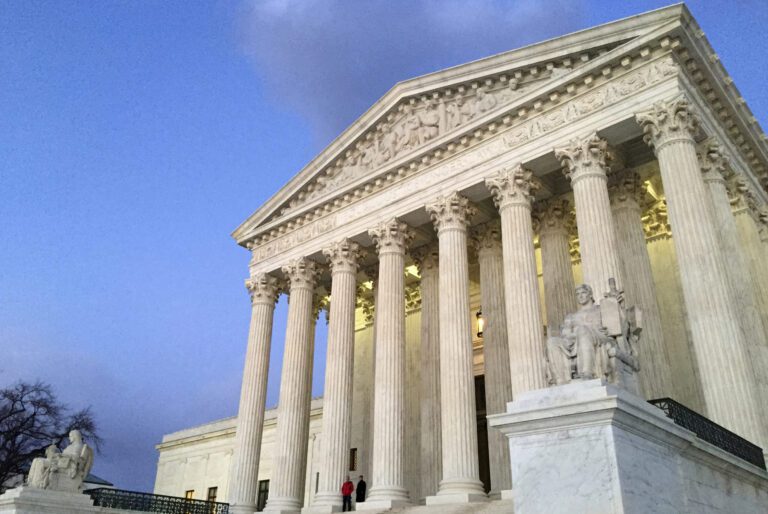Trump Seeks Supreme Court Review of Tariff Authority: A Look at the Legal Battle
President Donald Trump is urging the Supreme Court to expedite a review of a recent lower court ruling that deemed several of his tariffs illegal. This ruling has raised significant questions about the extent of presidential power regarding unilateral tariff imposition.
Background: The Legal Arguments
In a notable case, V.O.S. Selections v. Trump, a federal appeals court ruled 7 to 4 against the administration. The court upheld a previous decision stating that Trump does not possess unlimited authority under the International Emergency Economic Powers Act (IEEPA) to impose his so-called “Liberation Day” tariffs. Here’s what you need to know:
- Ruling Highlights: The court emphasized that the IEEPA does not grant the president “unbounded” authority.
- Ongoing Implications: The Solicitor General, D. John Sauer, argues that this decision creates uncertainty around ongoing foreign negotiations and could jeopardize existing trade agreements.
Trump’s Appeal to the Supreme Court
President Trump is pushing for the justices to hear arguments by early November, seeking a decision as swiftly as possible.
Key Points from Trump’s Argument:
- Impact on Tariffs: The administration believes the ruling could negatively impact economic negotiations and lead to significant job losses.
- Job Security Concerns: According to Sauer, millions of jobs could be at risk if tariffs have to be refunded to companies that paid them.
The Role of Congress and Executive Power
The Constitution clearly entrusts Congress with the authority to impose tariffs. Over the years, however, Congress has delegated some of these powers to the executive branch, allowing a degree of flexibility during certain circumstances.
- Legal Perspective: Neal Katyal, the attorney representing the plaintiffs, argues that the president should seek Congressional approval for any tariffs rather than rely on unilateral executive power.
Katyal’s Insights:
- “The Congress has never given the president such a sweeping power,” he stated in a recent Bloomberg podcast.
- He urged Trump to approach Congress rather than the courts for authority regarding tariffs.
Economic Ramifications
Trump’s tariffs have been a central theme of his economic policy. The administration has claimed that:
- Without these tariffs, the country could face dire economic consequences, including job losses and threats to programs like Social Security and Medicare.
- Treasury Secretary Scott Bessent emphasizes that refunding already collected tariffs could have disastrous implications for government finances.
Notable Figures Speak Out
- Scott Bessent: The Treasury Secretary has indicated that the substantial revenue generated from tariffs (approximately $183 billion) could sway the Supreme Court’s decision.
- He highlights that by the time the Supreme Court may issue its ruling, billions more in tariff income could be at stake.
Conclusion: Preparing for a Lengthy Legal Battle
Although the lower courts have temporarily upheld the tariffs during the appeal process, the dispute over presidential authority concerning trade policies is far from resolved. The Supreme Court’s eventual decision could set a significant precedent regarding the balance of power between Congress and the presidency in economic matters.
For further insights on tariff impacts and updates on this case, you can check resources on U.S. Tariffs, and understand more about the International Emergency Economic Powers Act.
Stay tuned for more updates as this legal saga continues to unfold—it’s likely to have consequential implications for both the administration and the broader economic landscape.


